1328 Hrs GMT
London
Thursday 16 July 2009
KHOODEELAAR! told you so! UK MPs behaved as stooges in their routine tête-à-têtes with Blaired PM G Brown today. None more crass than Louise Ellman, ‘chair’ of Transport committee of stooged MPs. And as expected the Guardian filed a version of the tête-à-têtes calling the event a grilling. There was no grilling.
9.38am: This one's not for wimps. It's Gordon Brown's twice-yearly appearance before the Commons liaison committee, the body comprising the chairs of all the other Commons committee. It goes on for two and a half hours and I don't think anyone will mind me saying that it's not a bundle of laughs.
There's a debate to be had about how much we really learn from these sessions. Personally, I think the public would learn more if liaison committee subcontracted the task of grilling Brown to a panel made up of Nick Robinson, Adam Boulton, Evan Davis, David Dimbleby and Jeremy Paxman, but sadly that's never going to happen. The liaison committee hearings, which Tony Blair introduced and Brown has continued, tend not to produce dramatic, front-page stories. But Brown is forced to clarify what he thinks about various issues and, for anyone interested in the minutiae of government policy, these hearings are normally full of useful mini-revelations.
The hearing starts at 10 and the committee has already said that the questions will cover five themes: banking reform and banking regulation; public spending and the recession; reform of parliament; other constitutional reform; and foreign policy.
Afghanistan will certainly come up and Brown has already sent the committee a letter, which he released on Saturday, explaining the government's strategy in Afghanistan and Pakistan.
10.01am: I'm in the committee room now waiting for the session to start.
10.01am: I have to say, it's not exactly a sell-out. We're in the Boothroyd Room in Portcullis House, which has room for about 70 members of the public. There are only about 20 people. I'm sitting next to someone working as an intern for an MP.
10.03am: Brown is here. "Morning, morning," he says to everyone. Alan Williams, the liaison committee chairman, says that John McFall, the Treasury select committee chairman, will lead the questions in the first session, on banking.
10.04am: McFall compares Stephen Hester's contract at RBS to footballer Cristiano Ronaldo's. Does that mean the banks have won?
10.05am: No, says Brown. A review being published this morning talks about "severe excesses" in the City that have to be dealt with. It will "fundamentally change" the environment for bonuses.
But McFall says "the horse has bolted" on bonuses. He mentions the Goldman Sachs payments.
10.06am: Brown says there has to be a long-term framework for bonus payments.
10.07am: McFall says Mervyn King, the governor of the Bank of England, told his committee that he was not consulted about the banking reform white paper. King also said the tripartite group – the Bank, the FSA and the Treasury – had not met.
Brown says he's not a member of the tripartite group. Sounds like he's passing the buck. He does not address the consultation point.
10.08am: McFall asks: "Has the governor become a loose cannon?"
No, Brown says. "The governor does a very good job." He says the basis of the UK system "will be followed round the world".
10.11am: McFall says that from his vantage, as Treasury committee chairman, there does not seem to be any "cohesion" to the tripartite system.
Brown turns the discussion back to the banking bailout. It's been followed around the world.
McFall says independence of the Bank was a "selling point" for Labour. Has it ended up a "two-edged sword"?
Not at all, says Brown. Giving the Bank independence kept inflation under control.
Brown is sounding like the chancellor again now. He's always at his most confident in Treasury mode.
10.12am: Malcolm Bruce, the international development committee chairman, has the floor now. He wants to know why Brown did not separate investment banking from high street banking. And he wants to know what the government is doing to stop another banking crisis.
10.15am: The whole of the world has got to change its approach to regulation, Brown says. On the "Glass-Steagall" issued – named after the US legislation separating investment banking from high street banking – Brown says the problem in the UK was that both areas of banking failed.
Bruce moves on to the Lloyds/TSB takeover of HBOS. Hasn't that led to a loss of competition? Won't that have to be revisited? Won't RBS have to be broken up?
Brown says HBOS would have collapsed without the merger.
10.18am: There are bound to be fewer banks operating in the country now because of the loss of foreign banks. They were responsible for about half the lending in the UK in the past 10 years. As far as EU competition rules go, there are financial stability rules to be taken into account as well as competition rules.
10.20am: McFall comes in again. He says the "cancer" of the recession started with the banking crisis. Can Brown reassure people that refashioned banking system will be one in which people feel that they are getting a "fair deal"?
Brown says the way banks became "speculators" with people's money was unfair. The government has protected savers' money. He will deal with the excess boardroom practices which shocked people "and made me angry as well". Brown never sounds particularly convincing when he says that.
10.23am: McFall asks a final question – and addresses Brown as "chancellor". "That was my old job," Brown says. But, having listened to Brown deliver Treasury-speak for 20 minutes, it's easy to see how McFall got confused.
10.24am: Alan Williams asks if the government is accepting the report published by Sir David Walker today into corporate governance in the banking sector. Brown says the government will look at its recommendations, but that he does agree with its key demand for banks to have full-time chairmen.
We're moving on to the next session now. Edward Leigh, the public accounts committee chairman, is asking about public spending.
10.25am: Leigh says it would be "disastrous" if there was no proper planning for spending cuts. He quotes from a Sunday Times report saying civil servants are drawing up plans for 20% spending cuts.
10.26am: Brown says Leigh should not believe everything he reads in the paper. That report was "totally ridiculous".
To determine now what should be allocated to a particular department from 2012-13 would be wrong, Brown says.
10.27am: Leigh asks about the speech by Lord Mandelson – "the first secretary of state, your right-hand man" – this week predicting spending cuts in some areas. Does Brown agree with it?
Brown says "tough choices" will have to be made. The government is spending money to get the UK out of recession. The "profile of capital spending" in the future will be different. But the government cannot make decisions now about 2011.
How much are we spending on Afghanistan now, Leigh asks.
10.29am: About £3bn, on top of the MoD budget, Brown says.
Leigh asks how much it would cost to buy up the Afghan poppy crop.
Brown doesn't address this. He says that the government is examining savings across the board. "We are determined to get money to the frontline services." The government has already announced tax rises.
10.31am: Leigh says government predictions are "totally vague". Shouldn't there be a debate about Trident, or aircraft carriers, or Afghanistan?
Brown says that, with troops in a difficult situation, it would be wrong to get out of Afghanistan. Leigh says he wasn't proposing that.
10.32am: Brown says it will be possible to spend "less" on capital projects in the future because so much has been done already with the construction of things like Sure Start centres.
10.35am: Barry Sheerman, the children's committee chairman, asks about the proposal to guarantee all 16- and 17-year-olds school or training. He says the government has capped this at 55,000 places.
Brown says the government expects 55,000 teenagers to take the offer up. But if more come forward, more places will be provided.
Sheerman asks about "Neets" – youngsters not in education, employment or training.
Brown says there are programmes to help teenagers in this group.
Sheerman says Neets don't respond to these programmes. There should be a "green jobs" environmental programme that would really suit Neets, he says.
10.38am: Brown says he would like the voluntary sector to offer more job opportunities. What Sheerman suggested "is partly coming alive".
Will Building Schools for the Future – a national school renovation programme – continue, Sheerman asks.
10.40am: Brown says "public funding is continuing".
Sheerman says capital programmes are getting £44bn this year, but that the capital budget falls to around £20bn in the future. But that is at the point where Building Schools for the Future should be at its busiest. Is it "safe in your hands"?
Brown says it's an important programme. That doesn't sound quite like the commitment that Sheerman wants.
10.40am: Phil Willis, the chairman of the innovation, universities and skills committee, asks about further education colleges.
10.41am: Brown says that some FE colleges that have applied for money to built new premises have been let down. But there will be another round of grants.
10.41am: Willis asks whether Brown supports the target of getting 50% of young people into university.
10.43am: Brown says that's an aim that he "aspires too". Willis takes that as a yes – although Brown did not accept that it was a firm target.
But will the government provide more university places, Willis asks.
Brown says the government will make an announcement on this in due course. He's not able to make a detailed announcement. But there "will be additional places". The government will confirm this "as soon as possible".
10.45am: Willis says he's leaving it a bit late for people going to university in 2009.
10.47am: He mentions the target of getting a 40% graduate workforce by 2020. How will the government achieve that if universities are turning away thousands of students? Willis says that applications from groups such as older students and ethnic minority students have risen sharply this year.
Brown says he's determined not to repeat the mistakes made in the 1980s when young people were ignored. It's one of his few party-political points in a session that, so far, has been largely non-partisan.
Louise Ellman, chair of the transport committee, is asking about transport spending now. Is Crossrail safe?
10.48am: Brown says Crossrail is partly funded by the private sector. It's "moving ahead".
Ellman says the train operating companies are in trouble because of lower-than-expected passenger numbers.
10.50am: Brown mentions National Express. Lord Adonis took the right decision when he nationalised its franchise.
Ellman says the rail companies want more government support. Where will the money come from?
10.53am: Brown says he accepts the recession will have an effect, but the companies should be "sufficiently efficient". He does not anticipate the loss of further rail franchises.
But what if the train operating companies ask for extra funding, Ellman says.
Brown says "these are matters for discussion". But in the case of National Express the government was able to take over the franchise.
10.53am: Ellman asks about green jobs. Brown says he finds a lot of interest in environmental industries when he goes round the country.
Keith Vaz, the home affairs committee chairman, is asking about immigration. What is the impact of the recession on the government's immigration policy?
10.56am: Brown says the government operates a points system. The changes to the points system will have an effect on the numbers of people coming into the UK, he says, implying the numbers will go down.
Brown says the UK should be a country that draws on "the skills and talents of people around the world". But immigrants have to accept responsibilities in this country.
Vaz quotes from the BNP website. The BNP says UK jobs are at risk from foreigners.
10.59am: Brown says the BNP makes "discrimination and racism" part of its platform and that that's "wholly unacceptable". He does not think it has a place in democratic politics.
Vaz says ministers have in the past proposed a "cap" on immigrant numbers. Does Brown believe the points system in effect imposes a cap?
11.01am: Brown says that the points system controls immigration, but that a cap would be too crude – because it would lead to people who deserved access to the UK being refused.
We're now moving on to parliamentary reform. Sir George Young, the chairman of the committee on standards in public life, is in the lead.
11.01am: Young asks about the select committee being set up to consider Commons procedural reform. He says Brown promised it more than four weeks ago, but it has not yet been established.
Brown says he does not manage Commons business (which is a bit of a cop-out, because his chief whip does).
11.04am: Will Brown give up his "stranglehold on the business of the house", Young asks. One reason why the committee has not yet been established is that there was a row about its remit. Now it will be allowed to consider the timetabling of government business.
Brown says he will look "very favourably" on the committee's recommendations. But he does not go further than that.
Brown says the constitutional renewal bill will be published "in the next day or so". Later he says it's coming "at the beginning of next week".
11.06am: Can he get it through by next year, Young asks.
Most parties support the measures in it, he says.
But will the House of Lords let all the measures affecting them, such as the abolition of hereditary peers, Young asks.
Brown says that he thinks the Lords should accept that there is no justification for the hereditary principle.
11.09am: That sounds to me as if Brown is saying that the government will try to vote to get rid of the hereditary principle before the election. Ministers have been arguing about this for some time. That would mean turning the remaining hereditaries into life peers, and abolishing the system whereby any of the 92 remaining hereditaries who die are replaced by a hereditary byelection.
Young is now asking about PMQs. He asks about the way Brown accused Nick Clegg yesterday of having no policies.
That's just "banter", says Brown.
11.09am: Sir Patrick Cormack says the constitutional renewal bill has been delayed, but the parliamentary standards bill is being rushed through parliament. Will Brown give an assurance that amendments made in the Lords will be accepted by the government?
11.11am: Brown says he can't give that assurance.
11.11am: Cormack says that "significant chunks" of the bill were not even debated in the Commons because of lack of time.
Brown says the public was appalled by the expenses scandal.
"That's not the point," says Cormack. "It is the point," says Brown.
11.13am: Cormack says the government introduced a bill "at a gallop" with "profound constitutional implications". The bill could undermine parliamentary privilege. Was that Brown's intention? Has he read the memo from the clerk of the Commons criticising the bill?
Brown says the government has taken into account some of the points raised by the clerk.
11.18am: Cormack moves on to the Lords. Brown has found it "convenient" having unelected ministers there, such as Mandelson. But at the same time Brown is committed to replacing appointed peers with elected peers. If that were to happen, where would Brown pick the Mandelsons of the future from?
Brown says future members would be elected.
"But you would not be able to handpick your saviour, would you?" Cormack asks. Best line of the day so far.
Brown says the government has benefited from peers like Lord Darzi becoming ministers.
Cormack says that Brown compared himself to Heathcliff last year. Would he compare Mandelson to Svengali?
Brown says he never compared himself to Heathcliff.
Alan Williams asks if Brown would like to appear before the committee more often. Brown says he already makes plenty of statements to the Commons.
11.19am: Sir Alan Beith is asking about the Lords now. He says Brown has appointed 11 peers – 10 ministers and one adviser – to the Lords. They will stay there, even after they resign as ministers. Is that satisfactory?
Brown says he's glad people accept there's no place for the hereditary principle. In the light of that, people need to decide how to replace them.
But, Beith says, in practice Brown is creating a Lords that is "more and more appointed".
11.20am: Brown says that's the only option he's got. If you abolish the hereditary principle, you need to use appointment or election.
Beith says MPs are increasingly angry about the fact they can't question Lords ministers.
11.22am: Brown says Lords ministers appear before Commons select committees. He says that "in principle" he can't see why Lords ministers should not answer questions in the Commons chamber. But "in practice" many MPs would be opposed to this.
Beith asks about having ministers who did not belong to either the Lords or the Commons.
11.23am: Brown says he would be very surprised if the Commons were to accept this. (The Commons public administration committee is currently looking into this idea.)
11.23am: Beith turns to a written constitution. Brown has said a consultation would have to approve this. What form should that consultation take?
11.28am: Brown says parts of the constitution are written down. The issue is whether you take this forward.
Beith again asks about the consultation. He says that when Jack Straw, the justice secretary, was before his committee recently, Straw said he was "speaking to people in Blackburn" about it. Beith says consultation should go further.
Brown says a written constitution would have to include a mechanism that would allow it to be changed. And he says he would not want it to give judges more power.
Do we need a constitutional convention, Beith asks.
Brown says he would like to know what Beith thinks. There are lessons to be learnt from the way the constitutional convention (a 1980s exercise that eventually paved the way for devolution) operated in Scotland.
11.31am: Mohammad Sarwar, the chairman of the Scotland committee, asks if the Scottish parliament would ever use the power it has to raise income tax.
Brown says that Sir Kenneth Calman's commission proposed that the parliament should have to hold a popular vote if it wanted to use this power.
11.33am: Sarwar asks if Brown would support the setting up of a joint parliamentary assembly.
11.33am: Brown says the current procedures for cooperation between the UK parliament and the devolved parliaments, involving joint ministerial meetings, could be improved.
It would be a "good thing" if parliaments and assemblies could find some way of meeting each other.
Are there any plans for devolution in England, Sarwar asks.
11.40am: Brown says devolved bodies in England have been expanded. He recognises "the English dimension".
Sir Alan Beith, the justice committee chairman, says his committee recently published a report on this. It pointed out that England was the only part of the UK government ruled by the UK parliament.
Brown says that's because the UK is an "asymmetric" nation; ie England's much bigger than Scotland.
Phyllis Starkey, the communities committee chairman, is now asking about local government. Brown says the government is going to announce plans for local government reform soon.
Starkey asks if the government will be handing power down to local government, not taking it away from local government.
Brown says he wants to give "the maximum autonomy" to local government.
Starkey asks about the European charter for self-government, which would apparently commit the government to protecting the rights of local government.
Brown says he will consider it.
11.42am: Starkey asks Brown to make sure that John Denham, the communities secretary, studies the plan before he publishes his own proposals. Brown says he will fix up a meeting.
We're moving on to foreign affairs now. Mike Gapes, the foreign affairs committee chairman, takes the lead.
Gapes says he's just seen a statement issued this morning by Brown on nuclear disarmament. In it Brown says that his long-term aspiration is to get to world free from nuclear weapons. How realistic is that?
11.43am: Brown says that's what Barack Obama wants too.
11.47am: He discusses the document out today, The Road to 2010. (There's going to be a big conference on this next year.) He wants to offer countries access to nuclear power, in return for assurances that they do not develop nuclear weapons. But in return countries with nuclear weapons must agree to reduce the number they hold.
Brown stresses that he is talking about multilateral disarmament, not unilateral disarmament.
The world is at a defining moment. There used to be five countries with nuclear weapons. Now there are nine or 10. But, if the world does not act soon, many other countries will insist on having them. That's why the "offer" to non-nuclear powers needs to be much better.
Gapes asks if the goal is to reduce the number of nuclear weapons held or to eliminate them.
11.49am: Long-term, the goal is to get rid of them, Brown says.
James Arbuthnot, the defence committee chairman, now asks about Afghanistan. He thanks Brown for the letter sent to the committee (which I linked to in the post opening this blog).
What is Britain achieving in Afghanistan, Arbuthnot asks.
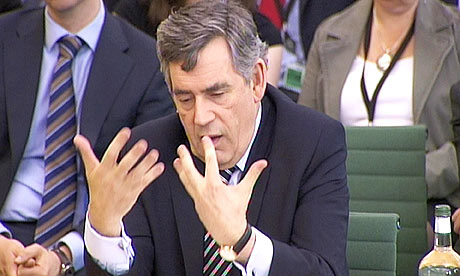 Photograph: PA Wire
Photograph: PA Wire11.49am: Brown says that thousands of people will be able to vote in the elections this summer because of the support given by British troops.
11.54am: On the wider point, Brown refers to the Pakistan-Afghanistan strategy announced in April. The military operations have to be seen in this context.
Do people in Afghanistan feel more secure, Arbuthnot asks.
In many areas, yes, says Brown.
In Helmand, Arbuthnot asks.
Brown is a bit more evasive on this point. He says large parts of Helmand are empty.
Would Brown agree that too many people, in the UK and abroad, have "very little idea of why our troops are there", Arbuthnot asks.
Brown accepts he needs to do more to explain what British troops are doing in the country.
Britain has continued to "force the pace" with its allies to make sure the mission is explained.
11.55am: Arbuthnot says that in the most recent visits he's made, security seems to be getting worse. Is that because there are too few troops on the ground?
11.56am: Brown says it's because the Taliban have changed their tactics. They are not launching head-on attacks. They are using more roadside bombs. The numbers of Taliban involved do not need to be "massively high" for them to have an effect.
11.57am: Brown pays tribute to those people who have been defusing the Taliban bombs.
Was the change of tactics a surprise, Arbuthnot asks.
No, says Brown.
11.58am: Arbuthnot mentions a Times story saying that the army asked for 2,000 troops and that Brown turned him down.
Did the chief of defence staff go to see Brown, Arbuthnot asks.
Brown says he speaks to the chief of defence staff all the time.
Did he ask for 2,000 extra troops, Arbuthnot asks.
Brown says they discussed various options. They agreed to review troop commitments after the summer elections.
Did he recommend that an extra 2,000 should be sent, Arbuthnot asks.
12.02pm: Brown says that's why he wants the Afghans to deploy more troops in Helmand.
Arbuthnot says that Alistair Darling said at the weekend that the MoD would not be short of money to pursue this campaign. What did he mean?
12.08pm: Brown says he's making more money available urgently to meet the Afghanistan requirements.
Arbuthnot says that the defence secretary told him earlier that this meant an extra £100m. Brown accepts that.
But this is less than was available to meet urgent operational requirements last year, Arbuthnot says.
Brown says the chief of the defence staff has said the army is better equipped than ever before.
Arbuthnot says the MoD is now having to meet its urgent operational requirements from its own budget.
Brown says the MoD budget was slashed in the 1990s. He "regrets" that people are making an issue of this. Resources have been made available.
But, Arbuthnot says, there's a cap on the urgent operational requirement budget.
Brown – who has several times addressed Arbuthnot as "Mr Arbuthnot", a clear sign that he's not happy – says that defence spending as a whole has gone up.
12.11pm: Arbuthnot asks about helicopters. How many are there in Afghanistan?
Brown says he could give the number, but he's been advised not to on security grounds.
Arbuthnot says the government has said how many Mastiff armed vehicles are there.
How will the government know if it's succeeded in Afghanistan, Arbuthnot asks.
Brown mentions various answers: by building up Afghan forces, by providing security, and by ensuring that the fight in Pakistan against al-Qaida is succeeding.
12.12pm: Arbuthnot has one more question, about Pakistan. It has nuclear weapons. Will the long-term solutions protect the UK from the threat that poses?
12.13pm: Brown says the Pakistani military is taking action against al-Qaida. Britain has to help displaced people, so they don't turn to militancy. Britain is also spending more on development in the country, so that children receive a non-militant education.
12.19pm: Andrew Miller, the chairman of the regulatory reform committee, is now asking about Iran. It looks as though it will take some time for things to settle down in that country. What's the strategy for seeking to protect embassy employees in Iran, and in other unstable countries?
Brown says it's important that all countries stand up for the rights of embassy employees in these circumstances.
12.25pm: Mike Gapes asks about Israel. The Israeli prime minister has "grudgingly" accepted that there should be a Palestinian state. But the Israelis are still allowing settlements to be built on the West Bank.
Brown says there should be a freeze on settlement construction.
12.30pm: How can border access into Gaza be improved, Gapes asks.
Brown says that he is working on this. He's using persuasion. He has also talked to George Mitchell, the US envoy, about this.
Brown says the deadlock needs to be broken. If the Israelis were to freeze settlement construction, there would be some Arab response.
Isn't the situation "incredibly bleak", Gapes asks.
It's "incredibly difficult", Brown says.
Andrew Dismore, the joint committee on human rights chairman, asks about the sale of military equipment to Israel. Is there an arms embargo to Israel?
Brown says he will write to the committee about this.
On Sri Lanka, Dismore asks about access to the camps where Tamils are being held. What's the government doing to help them?
Brown, who has had to take a look at his briefing documents to help with this one, says there are about 28,000 displaced people in Sri Lanka. The government is encouraging the Sri Lankan government to cooperate with the international aid agencies. A ministerial statement on this is coming soon.
Dismore asks if Brown accepts the need of a political solution. Don't the Tamils need a measure of self-determination?
Brown accepts this. He says Des Browne, his Sri Lankan envoy, is pushing for this.
12.31pm: Mike Gapes has another question, about the Lisbon treaty. He says that he had a letter from the foreign secretary yesterday saying there will have to be a vote in parliament to agree the protocol agreed to amend the Lisbon treaty ahead of the Irish vote.
12.33pm: Brown says that the protocol will have to be agreed before any other country joins the EU. The protocol would not have to be passed by all parliaments before the treaty could be enforced.
So the vote won't have to happen until "several years down the line", Gapes says.
Brown confirms that.
One final question. Sir Patrick Cormack wants to know what Brown is reading on holiday.
12.37pm: "I seem to have agreed to read a few select committee reports," Brown says. "But I would prefer to read fiction."
And that's it. All over for another six months.
Instant summary
Another Lisbon treaty vote: It took a long time coming, but eventually we got a story. Parliament's going to get another chance to vote on the Lisbon treaty. Or rather, it will have to vote on the protocol agreed by EU leaders containing concessions to the Irish ahead of the second vote on the Lisbon treaty this autumn. David Miliband confirmed this in a letter to the foreign affairs committee yesterday. Brown said that there was no need for parliament to vote on the protocol immediately, and that it could wait until the next round of EU treaty renegotiation, when Iceland or Croatia or whoever joins the EU in a few years time. But, with David Cameron committed to renegotiating Lisbon if he wins the election, this could give him a way of doing it. Without having spoken to anyone about this, I can't tell how significant this is – Brown said the Lisbon treaty would become law if the Irish voted yes without the protocol going through parliament, and so it's hard to imagine how a Commons vote after June 2010 would make much difference – but this is bound to get the Tory Eurosceptics excited.
Brown didn't deny turning down Afghanistan troop request: James Arbuthnot gave Brown ample opportunity to deny a story in the Times saying that he had turned down a request from the army to send 2,000 more troops to Afghanistan. Brown said that he had discussed various options with the military – that was the formula he used when asked about this in the Commons yesterday – but he did not deny it.
Lords reform before the election: Brown confirmed that the government will publish its plans for Lords reform at the beginning of next week. Ministers are not going to try to get full Lords reform through before the elections, but ministers would like to convert the remaining hereditary peers into life peers and do away with the system whereby the hereditaries continue to renew themselves through bizarre byelections whenever one of them dies. (Only hereditary peers outside the Lords are allowed to be candidates – they are the most extraordinary byelections in the Western world.) From what Brown said, I got the impression that he is going to try to do this before the election, but I'll have to take a look at his exact words to be sure.
Star of the day: James Arbuthnot. He asked a series of questions that were precise, polite, tough and very well thought-through. The way he tackled Brown over the Times story, breaking up the question into three parts, was a model of how to proceed. I still think Nick Robinson, Adam Boulton etc (see my first post of the day) would do a better job as a whole, but on Afghanistan, it's hard to think of anyone asking better questions than Arbuthnot.
Turnout below 50%: There are 33 members of the committee. In the past most of them have turned up. But today only 16 members – fewer than 50% – turned up. I don't know why, but it may be that committee members are becoming sceptical of the value of these hearings. Or it might be that, with Brown seen as being on his way out, he doesn't matter to them as much as he used to. Maybe David Cameron should offer to do a turn?
And some good news: In the past the liaison committee has suggested that it might be helpful to have these meetings more regularly. The government recently published its response to this idea. Luckily for all of us, it decided that twice a year was quite enough.
So that's it until December/January. See you then.



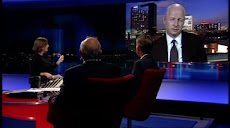
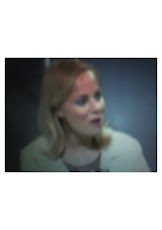
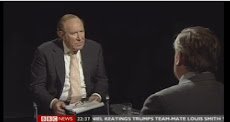
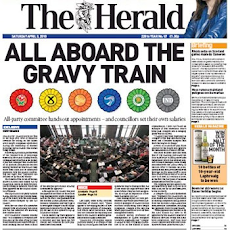
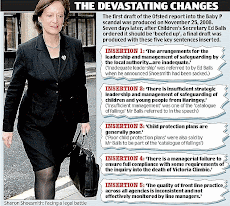

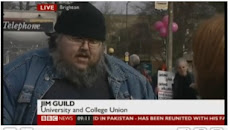
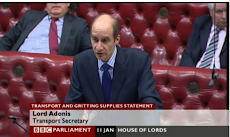
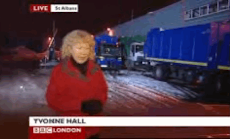
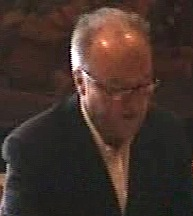



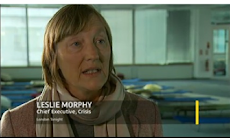


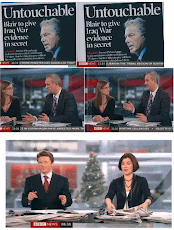
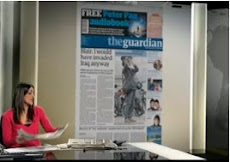

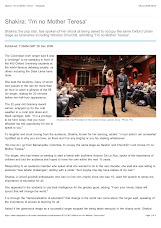
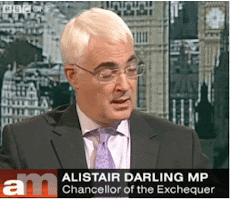
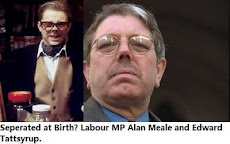
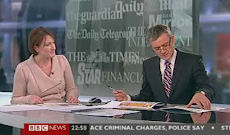
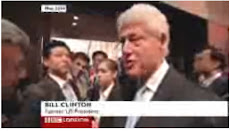
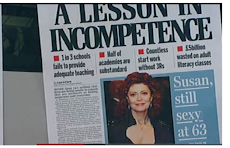

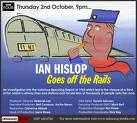
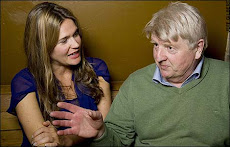
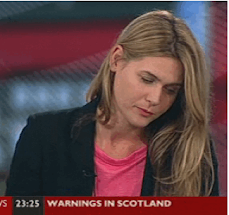

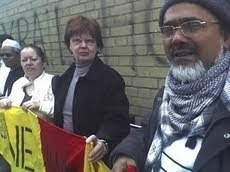
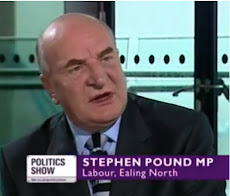

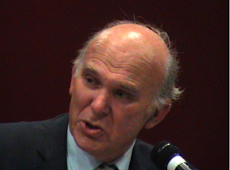

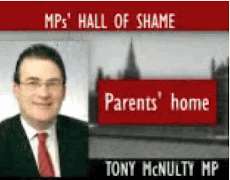
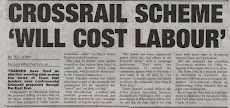
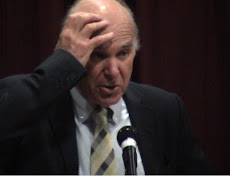
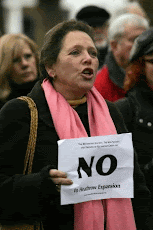
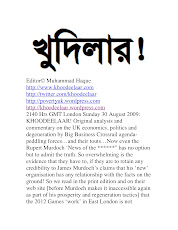
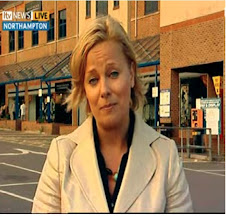
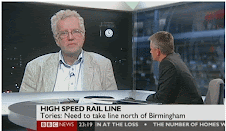
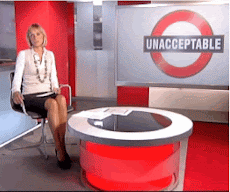
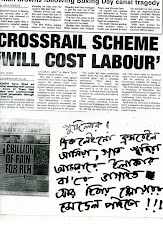

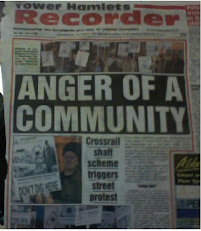
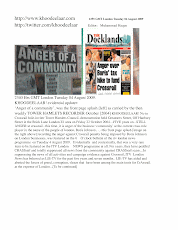
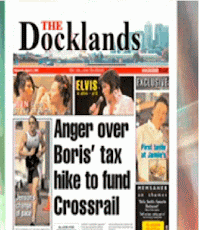


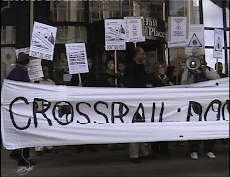
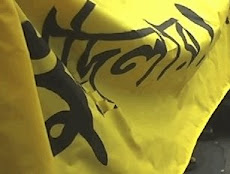
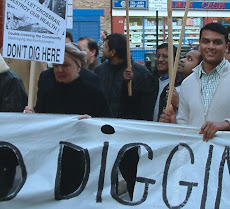

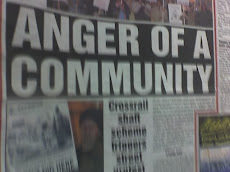
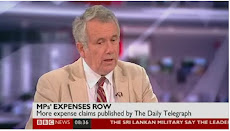
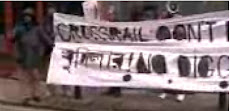
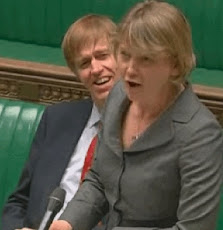

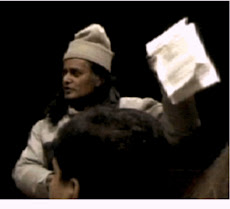
No comments:
Post a Comment